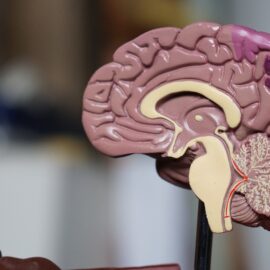

This article is an excerpt from the Shortform book guide to "Waking Up" by Sam Harris. Shortform has the world's best summaries and analyses of books you should be reading.
Like this article? Sign up for a free trial here.
Are you fairly new to meditation, or are you considering getting started? Do you get discouraged and wonder whether you should be experiencing more results sooner?
If you’ve started on your meditation journey or you’re thinking of taking the first step, Sam Harris has some advice for you. In Waking Up, he shares some insights that will help you know what to expect from this spiritual practice.
Read more to find encouragement for your meditation journey.
The Meditation Journey
Meditation is a skill that must be practiced. When you first learn to meditate, you may feel an initial thrill of success. However, as you practice, you may feel more and more distracted during meditation. Harris writes that this is a natural step along your meditation journey. And, though it feels like you may be getting worse at meditating, it actually means you’re getting better. If you start to feel distracted while meditating, it means you’re getting better at noticing your thoughts—in other words, you’re on the right track. True enlightenment may still be very far away, but you’ll find that the process of getting there makes your mind incrementally healthier.
(Shortform note: If you approach meditation with unrealistic expectations of how much or how quickly it will change your awareness, you may walk away disappointed. In Mindfulness in Plain English, Bhante Gunaratana lays some ground rules—that meditation requires patience and being honest with yourself, and that the meditation process and its results are neither automatic nor predictable. Like Harris, Gunaratana points out that you’ll run into pitfalls in your meditation practice, such as boredom, disappointment, and even physical pain. These sensations are themselves thoughts and feelings that should be examined within the context of being mindful and not looked down upon as signs that you’re not meditating right.)
Eventually, during meditation, you may notice your consciousness as it exists between one thought and the next. When this happens, you can finally understand that you are not your thoughts. Instead, you are the conscious awareness that your transitory thoughts pass through. It’s as if your awareness is a movie screen, and your thoughts are the images projected on it. No matter what those images are, they can’t harm the screen itself.
This is spiritual enlightenment at its core—that consciousness without thought is your true, underlying experience. Harris doubts that anyone can live in this state of awareness all the time, but he does believe that, through practice, you can glimpse it. Doing so can free you from the suffering triggered by the thoughts projected on the blank screen of your mind. How can you suffer when the “self” that is suffering is just an illusion, a “movie special effect” of the brain?
(Shortform note: In The Happiness Trap, Russ Harris presents another way of looking at the same idea that Harris is trying to convey. Instead of declaring that the self is an illusion created by a stream of passing thoughts, he says that you have a “thinking self” and an “observing self,” each of which serves a different function in your mind. In this view, the purpose of mindfulness is to disentangle these two parts of your awareness so that you can observe and recognize which thoughts are helpful and which thoughts aren’t. Rather than seeing your “thinking self” as an illusion, you can simply learn to distance yourself from its more destructive tendencies.)
If you decide to pursue meditation, Harris says it’s important to find a good teacher, someone who can model the calm and sense of presence you’re trying to achieve on your path to enlightenment. However, be wary. The teacher-student relationship is ripe for exploitation, and the role of spiritual guru is especially attractive to frauds. Even teachers who offer good meditative guidance will sometimes make spurious claims about science or medicine as it relates to their field. As in all things, it’s good to maintain a certain level of skepticism, especially if you feel you’re being conned or abused by someone who claims to be a spiritual master.

———End of Preview———
Like what you just read? Read the rest of the world's best book summary and analysis of Sam Harris's "Waking Up" at Shortform.
Here's what you'll find in our full Waking Up summary:
- Why those who reject religion are missing out on something crucial
- A reason-based approach to spirituality that’s rooted in science and meditation
- What science and theology have to say about the soul and the mind






